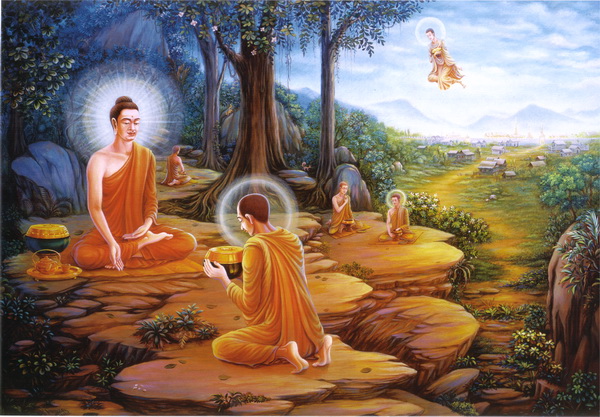The Story of Mahadhana
Verse 123: Just as a wealthy merchant with few attendants avoids a dangerous road, just as one who desires to go on living avoids poison, so also, one should avoid evil.
The Story of Mahadhana
While residing at the Jetavana monastery, the Buddha uttered Verse (123) of this book, with reference to Mahadhana the merchant.
Mahadhana was a rich merchant from Savatthi. On one occasion, five hundred robbers were planning to rob him, but thy did not get the chance to rob him. In the meantime, they heard that the merchant would soon be going out with five hundred carts loaded with valuable merchandise. The merchant Mahadhana also invited the bhikkhus who would like to go on the same journey to accompany him, and he promised to look to their needs on the way. So five hundred bhikkhus accompanied him. The robbers got news of the trip and went ahead to lie in wait for the caravan of the merchant. But the merchant stopped at the outskirts of the forest where the robbers were waiting. The caravan was to move on after camping there for a few days. The robbers got the news of the impending departure and made ready to loot the caravan; the merchant, in his turn, also got news of the movements of the bandits and he decided to return home. The bandits now heard that the merchant would go home; so they waited on the homeward way. Some villagers sent word to the merchant about the movements of the bandits, and the merchant finally decided to remain in the village for some time. When he told the bhikkhus about his decision, the bhikkhus returned to Savatthi by themselves. Continue reading
















